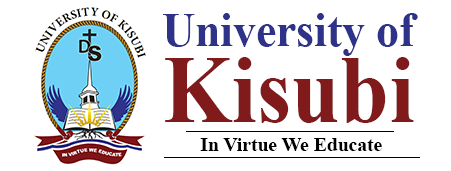What is a synod?
A synod is a gathering, traditionally of bishops, that helps the church to walk forward together in the same direction. The word “synod” comes from the Greek word syn-hodos, meaning a” road travelled together”, or “the same path”. Synods were common in the first centuries of Christianity, giving Bishops the opportunities to meet and discuss issues of importance for the life of the church. In 1965, Pope Paul VI instituted the synod of Bishops at the universal level of the church. He wanted a way of continuing the fraternal, collegial exchange that had been experienced at the second Vatican council where Bishops from across the globe gathered together between 1962 and 1965. Since then synods have been organised every two or three years, bringing together Bishops, experts, and various delegates to discuss topics like the Eucharist, the word of God, the Middle east, the new evangelisation, the family, young people, the Amazon. In each case, bishops vote on the Final Document, then the pope writes his own text-called an “apostolic exhortation”-to open new pathways and shed new light on what was discussed in the synod, so that it can radiate across the entire church.
Now the church of God was convoked in a synod on October 9-10, 2021 by Pope Francis and every diocese across the whole world was called to celebrate the opening of the synod on the local level the following Sunday October 17th. The theme for this synod is “For a synodal church: communion, participation, and mission.
One fundamental stage will be the celebration of the XVI ordinary General assembly of the synod of Bishops in October 2023 which will be followed by the implementation phase that will again involve the particular churches.
With the convocation, Pope Francis invites the entire church to reflect on the theme that is decisive for tis life and mission. “It is precisely this path of synodality which God expects of the church of the third millennium.
Unlike past synods, this one isn’t about addressing particular issue, but about becoming who God calls us to be as a church, all of us together, amidst the reality of today’s world.
it is no longer a one-month synod of Bishops but a two –year synodal process for the entire People of God, all the baptized! (Laity, Pastors, the Holy father) . All are invited and no is to be left behind or excluded!
It is a synod that aims at giving the entire church a lived experience of synodality. Its not about filling in a questionnaire, but gathering the fruits of what the Holy spirit is saying to us here and now
The aim of the synod is not just to talk about synodality, but to put synodality into practice from now onwards, in every diocese, parish and country across the whole world.
It’s about the entire people of God being involved in the decision making process of the universal church by listening to the Holy Spirit.
Fundamentally, synodality is about journeying together. This happens through listening to one another in order to hear what God is saying to all of us. It is realising that the Holy Spirit can speak through anyone to help us walk forward together on our journey as people of God. The lay faithful, the bishops, the pope: all listening to each other and listening to the Holy Spirit, “the spirit of truth” (Jn14:17), in order to know what He is saying to the church”. (Pope Francis, commemoration of the 50th anniversary of the Institution of the synod of Bishops, October 17, 2015.
Through this process we aim at achieving the following:
Communion
In this way it becomes possible to build communion amid disagreement, but this can only be achieved by those great persons who are willing to go beyond the surface of the conflict and to see others in their deepest dignity
Participation
“Lay people are, put simply, the majority of the people of God. The minority-ordained ministers-are at their service”-Pope Francis, Evangelii Gaudium, 102. Therefore the participation of the Laity will help “make pastoral decisions which correspond as closely as possible to God’s will”
Mission
“Mere administration” can no longer be enough. Throughout the world, let us be “permanently in a state of mission”-Pope Francis Envangelii Gaudium
A formal teaching document will provide a universal plan of action cantered on synodality to be implemented in each local church
everyone (laity, pastors, Bishop of Rome) is called to “pastoral conversion”
a church which listens can evangelise those on the peripheries of our communities, parishes and diocese
This helps from a culture of encounter becoming a more effective and credible witness to the truth of Christ in the Third Millennium
By Bro. Vincent Barigye
Faculty Member
Email: [email protected]
